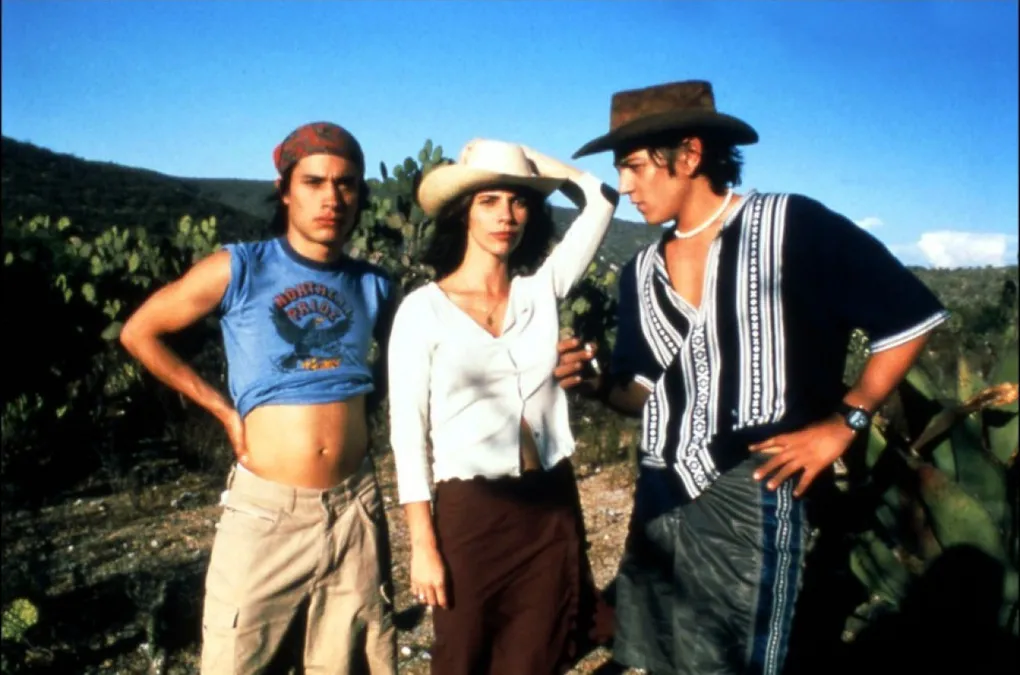
Thoughts on the film Y Tu Mamá También
I recently watched this film and it got me thinking for a while. This film kind of wrecked and restored me. There is something very special about this film, maybe the cast, maybe the screenplay or maybe the cinematography. Well, that’s difficult to answer. I feel, this film is an experience! Something that gets you thinking for a while.
—SPOILERS AHEAD—
Y Tu Mamá También is a film about Tenoch and Julio, two very good friends, from different financial backgrounds, who are sexually active—or rather, I’d say horny—Mexican teenagers. They both become free for their summer vacation as their girlfriends go to Italy. At a wedding, they meet Luisa, a fairly older lady, wife of Tenoch’s distant cousin. They try to impress her by inviting her on a road trip to a fictional place called “Heaven’s Mouth,” which is a beach. Luisa refuses at first, but later agrees out of resentment after her husband confesses to cheating.
The road trip doesn’t go as harmoniously as the boys hope, as they find out that they have slept with each other’s girlfriends. Eventually, they both get involved with Luisa—who is hiding a big secret. The road trip transforms the boys into mature adults, and the transformation shown in the film is magnificent. The journey is all about life lessons for these immature teenagers, and I can see a few perspectives in the film that relate to real-life experiences.
Once the road trip comes to an end, Luisa decides to stay at Heaven’s Mouth and explore the place, while the teenagers return to their lives. The last thing Luisa tells them is:
“Life is like the surf, so give yourself away like the sea.”
This quote beautifully captures the essence of the film. No one knows what life has in store for us. Like surfing, we never know what’s coming—so why not enjoy the thrill, endure it, savor it, and make it unforgettable while the waves last?
After the trip, Julio and Tenoch break up with their girlfriends. They don’t see each other again—until they accidentally bump into each other a year later in a coffee shop. They talk about life. Tenoch shares that Luisa died of cancer a month after the road trip. Her quote makes even more sense now—she embraced her last days joyfully, knowing she was dying, but never told the boys.
The film ends with the narrator saying:
“Both Tenoch and Julio never meet again.”
That line broke me. The movie shows how close they were—the fun, the intimacy, the honesty. To think that it all ends like that… it’s devastating. It reminded me of friendships I’ve had that faded over time. That’s life—unpredictable, changing, often without closure. Sometimes, we just need the strength to accept change and keep going.
This film reminded me that people come and go, but life doesn’t stop. That’s a lesson I learned early on, and it hit me again here. The final scene always tears me up.
Alfonso Cuarón is an incredible director. The storytelling, narration, and cinematography are brilliant. Y Tu Mamá También gave me a moment to reflect on my own life:
How happy have I been? How many people have I made happy?
Is happiness the goal of life?
This film inspired me to be more kind, more reflective, and to keep growing.